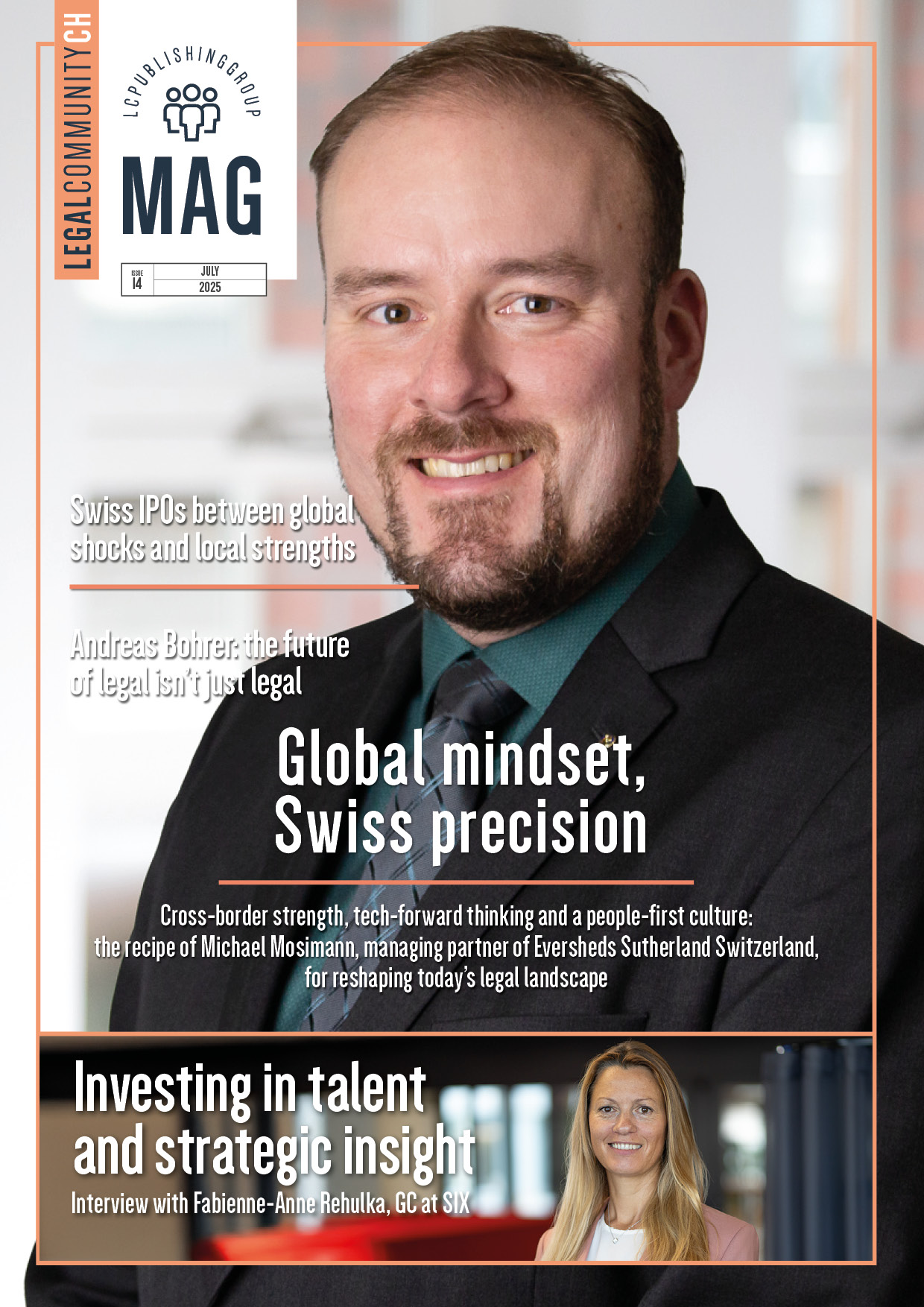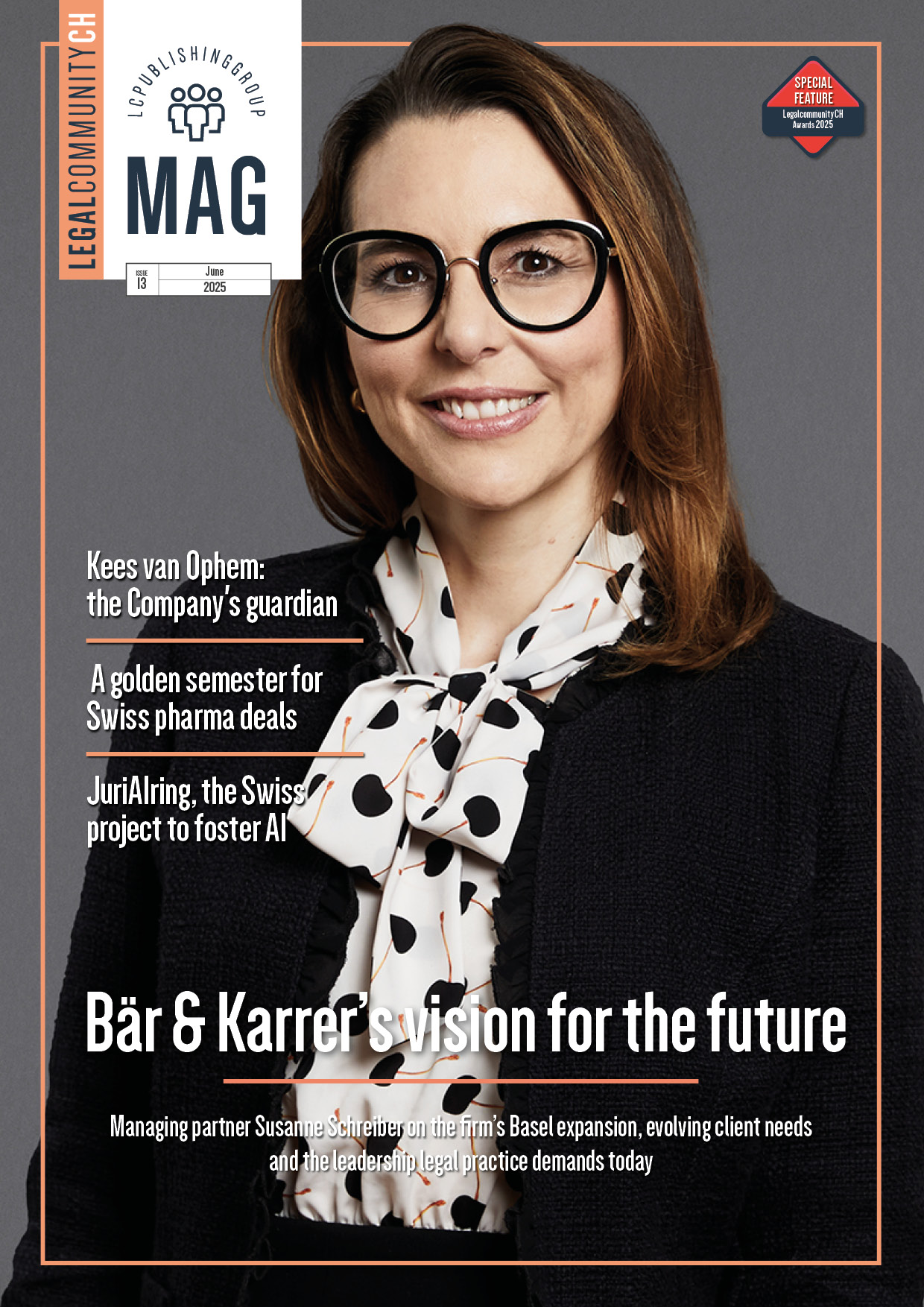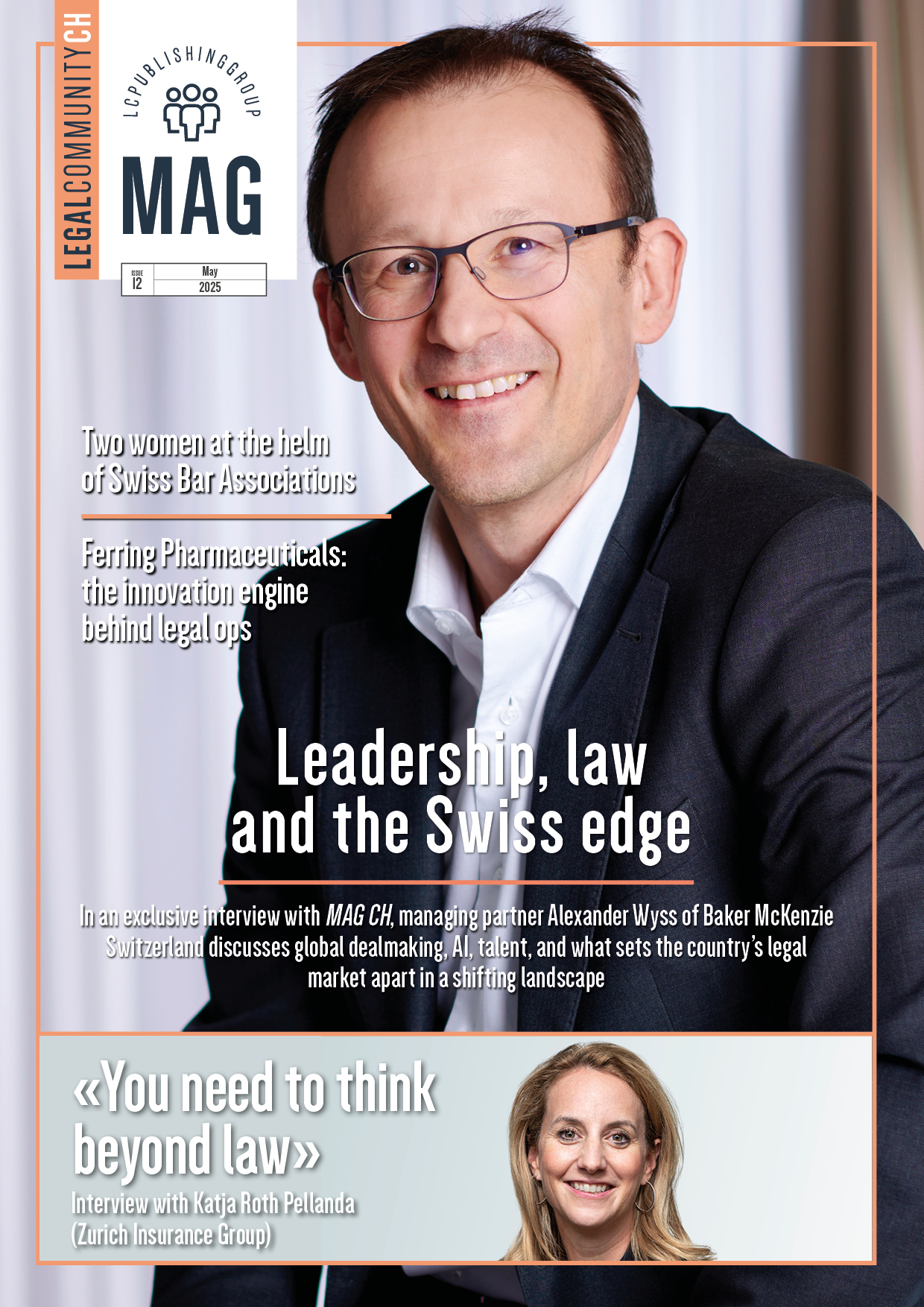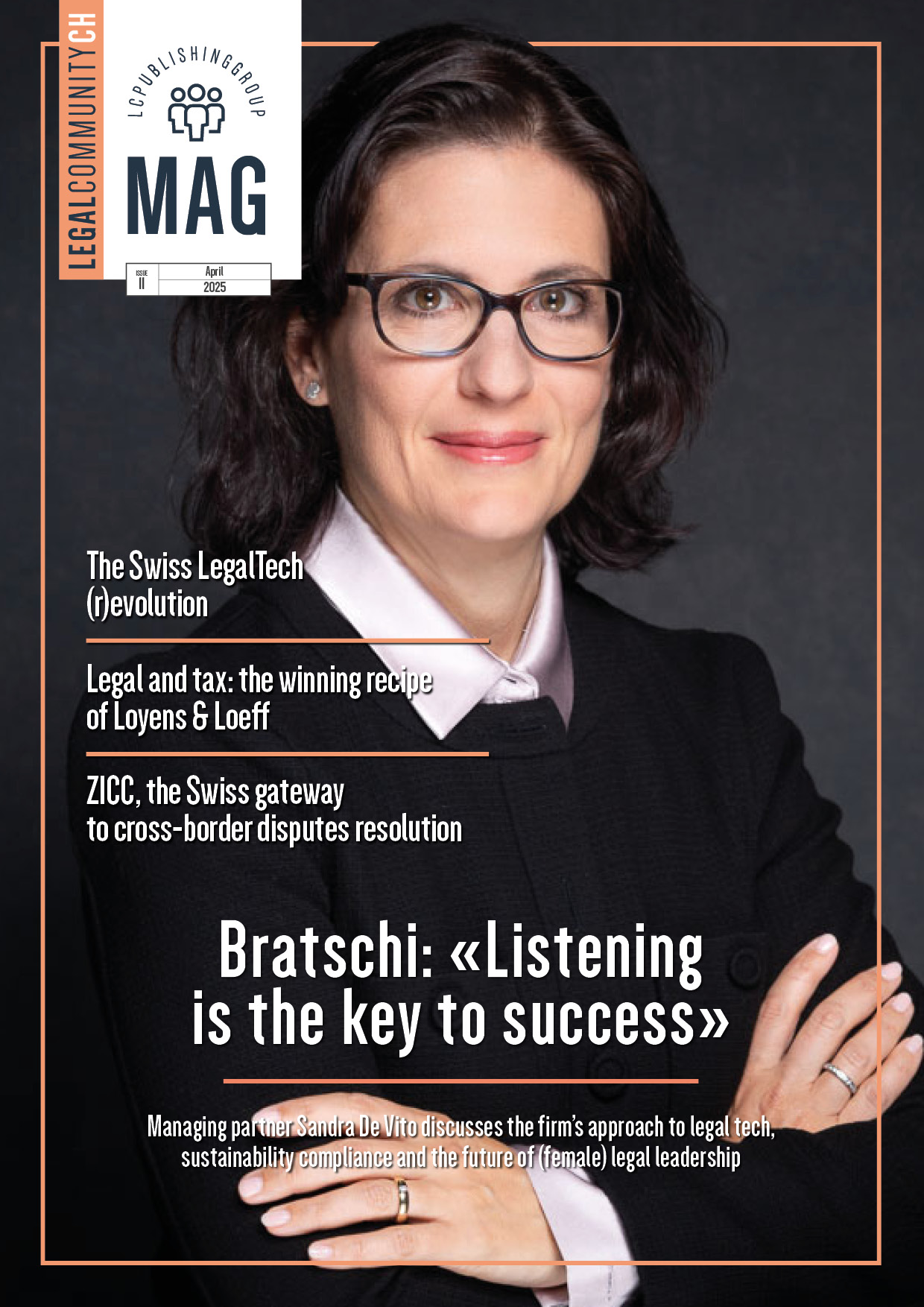AI and lawyers, welcome to the new normal
(Translation: Ilaria Iaquinta, article «AI and lawyers, welcome to the new normal» published on MAG 123)
When talking about law tech or artificial intelligence with lawyers, most of them start referring to the future and the impact that these tools will have. But AI in law is already the present. Indeed, «The last five years has seen an explosion in the legal technology sphere. Across a range of industries, we have arrived at a point where deploying AI is increasingly the norm, and law is no exception. The number of firms and in-house teams operating with some form of assistive AI technology has increased exponentially in such a short time period», tells MAG Emily Foges CEO at Luminance, the artificial intelligence platform for law firms and in-house teams.
Has this happened everywhere around the globe? «It seems it has… Our technology is used by over 150 customers in 40 countries globally, which translates into thousands of lawyers across the world using AI as part of their working routine – continues Forges –. It is no longer a case of whether this technology is beneficial, the question lawyers are now beginning to ask is which technology can best meet their requirements. Lengthy deployment and training periods, which plagued the implementation of legacy technology, are no longer cause for concern, now new-era tools are integrated seamlessly within minutes and learn alongside the lawyer».
MAG talked to Forges about the state of the technology in law firms and in-house departments.
Mrs. Forges what kind of technologies are already available today for lawyers?
Luminance’s machine learning platform offers lawyers greater insight at unmatched speeds, transforming document review across due diligence, compliance reviews, property lease abstraction, eDiscovery and many more.
Do languages represent somehow a barrier for these tools?
In the past, different languages have presented huge barriers for legacy solutions which are rendered useless in any language other than the one the technology was trained in. We often talk to UK and European based firms who had spent months, sometimes even years, training another system to find it only works in certain jurisdictions.
And today?
Luminance is transformative machine learning technology. Sophisticated, pattern-recognition algorithms read, understand and learn from any body of documents regardless of language, specialism or jurisdiction.
How does it work?
All languages are constructed from patterns, and Luminance clusters semantically and statistically similar documents based on this mathematical significance. Our first customers were Norwegian, French and Dutch. Nobody at Luminance spoke these languages at the time, yet Luminance was able to bring value within days. Currently, over 40% of our customers are working predominantly in non-English languages and we see success stories every day in Portuguese and Spanish.
From your point of view are lawyers already taking the most of these tools or are they still reluctant in using them?
The legal industry has historically been resistant to change. However, as consumers become increasingly used to working with AI in their personal devices, we are moving beyond AI’s unclear and futuristic connotations. We have seen perceptions of AI within the legal industry shifting; lawyers are more open than ever to trialling the technology in a bid to improve the services they deliver to clients. Now the question around AI in the legal profession is not why they should adopt, but when and how the adoption should be carried out.
Lawyers are starting to recognise the untold benefits that a machine learning tool such as Luminance offers. Not only are lawyers able to get through swathes of data at a record pace, they are, more importantly, more confident in the results they achieve. Legal teams can avoid the rush of sampling or the inaccuracies of manual review, instead they can negotiate from the best possible position, certain that nothing has been missed.
Is there a link between the size of the company and the speed of adoption of these tools?
Not necessarily. Some of the smaller firms have been quicker to recognise the untold benefits that a product such as Luminance offers. These organisations know that without these innovative tools, they won’t survive. So instead, they are embracing change and thriving in the process.
Is there a different approach to AI between in-house lawyers and outside counsels?
Definitely. In-house lawyers often have more limited resources than larger firms, so are constantly on the lookout for new solutions that integrate into existing technology and workflows, as well as one that is affordable and easily scalable. GC’s tend to look to outside counsel to see what they’re using, as advisory firms will have the resources to test the technology first, and then advise their clients.
And the law firm?
By contrast, law firms often have the resources to thoroughly investigate the solution they want to deploy, and many have dedicated innovation teams responsible for investigation, testing and driving use. They need to deploy quickly, due to competitive pressure and client demands, and often need a solution that can handle more than one area of law, due to the variety within their practice. They can also feel the pressure from their clients, the in-house lawyers, to innovate and provide the most efficient service possible.
Moving to the future, how will AI impact the legal sector?
In our customer’s organisations, the biggest impact we are seeing is a change in the type of work those lawyers are doing. Junior lawyers normally burdened with endless mind-numbing due diligence, can instead spend their time on more analytical and creative tasks, and we see this shift having a positive impact on lawyers’ career progression.
What else?
The adoption of AI levels the playing field for firms and clients alike, opening up the market to smaller firms with fewer people, as they will be able to bid for larger projects. So, to remain competitive in a crowded market, law firms and in-house counsel need to continue to view AI as an exciting enabler, rather than simply a box-ticking exercise. Accountancy is case in point; today, the idea of a good accountant without Excel is unthinkable, perhaps in time, a lawyer without an AI platform will seem just as absurd.
Some people are concerned about job losses due to AI while others think that trainees won’t be able to increase some skills due to the use of technology for certain tasks. What do you think about this?
The use of AI does not seek to replace the lawyer, but instead allows he or she to conduct their most logical review in complete context of their entire data set. By adopting platforms like Luminance, firms can ensure they are getting the best value out of their staff, with the automation of low-value tasks freeing them up to concentrate on the more strategic thinking.
And what about law firms? AI is changing the way legal services are delivered. Will it somehow become a competitor for law firms? Will these tools or their providers become another alternative legal services provider to compete with?
AI will never be able to compete with law firms, at least not for a long time. At Luminance, we would never attempt to replace the years of expertise, experience and judgment of a lawyer. Technology should seamlessly work in tandem with the lawyers, surfacing relevant and pertinent information which the lawyer then decides to act on.
Machine learning platforms such as Luminance allow firms to remain productive, profitable and above all, competitive.
So far, Luminance has launched specific tools for due diligence and eDiscovery, what’s next? In February the company collected $10 million from existing investors how will you use this funding?
2018 was a year of significant achievement for Luminance. We expanded from one product to five, owing to the flexibility and innovative nature of our core technology. The latest funding round will allow us to continue the development of our product suite, to ensure that our platform remains at the cutting of machine learning research.
We are constantly looking to increase the size of our team globally, hiring the brightest employees to drive our progression forward and expand our reach internationally, which this funding will support.
















